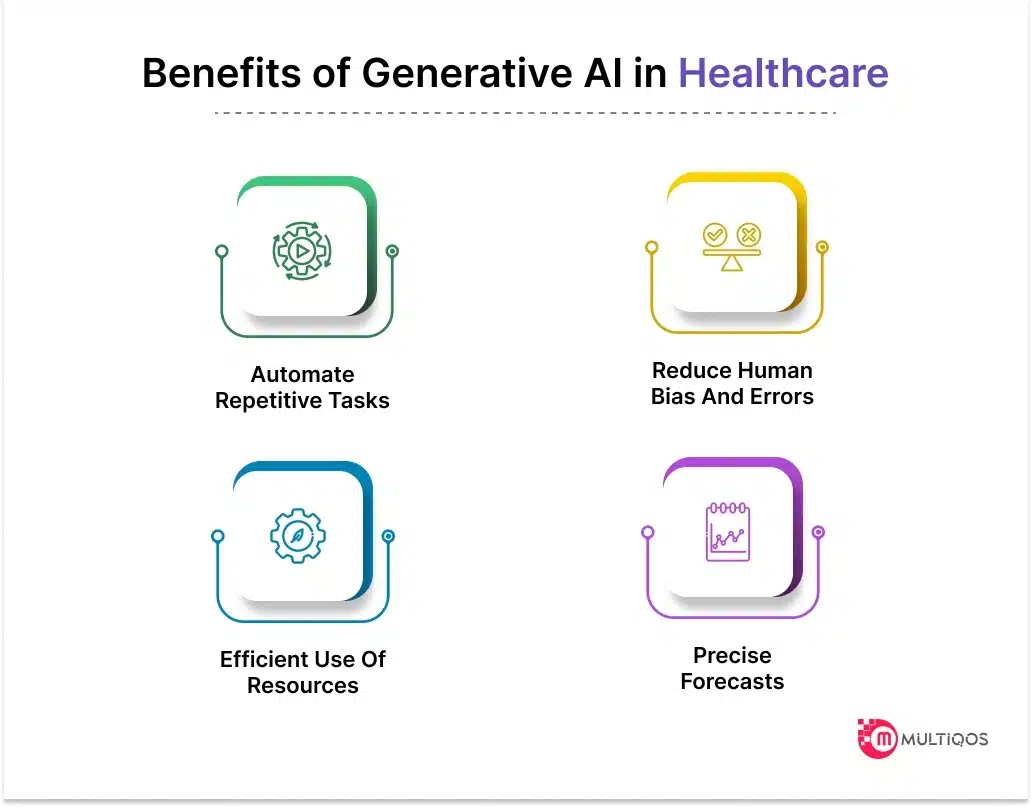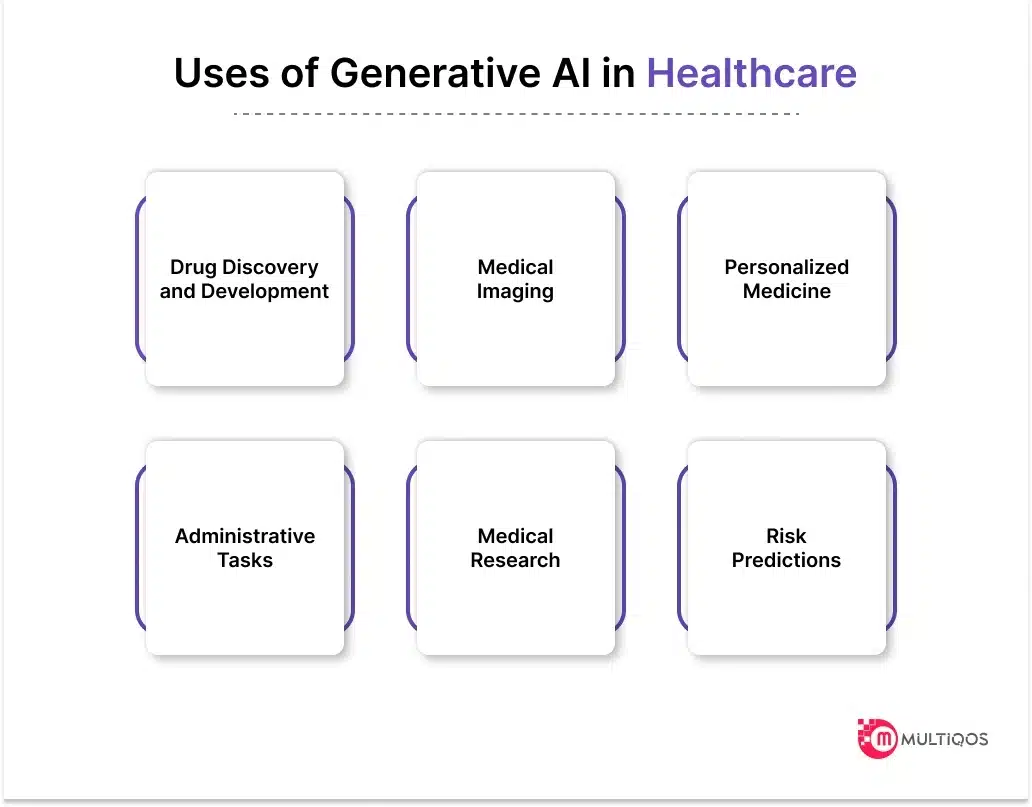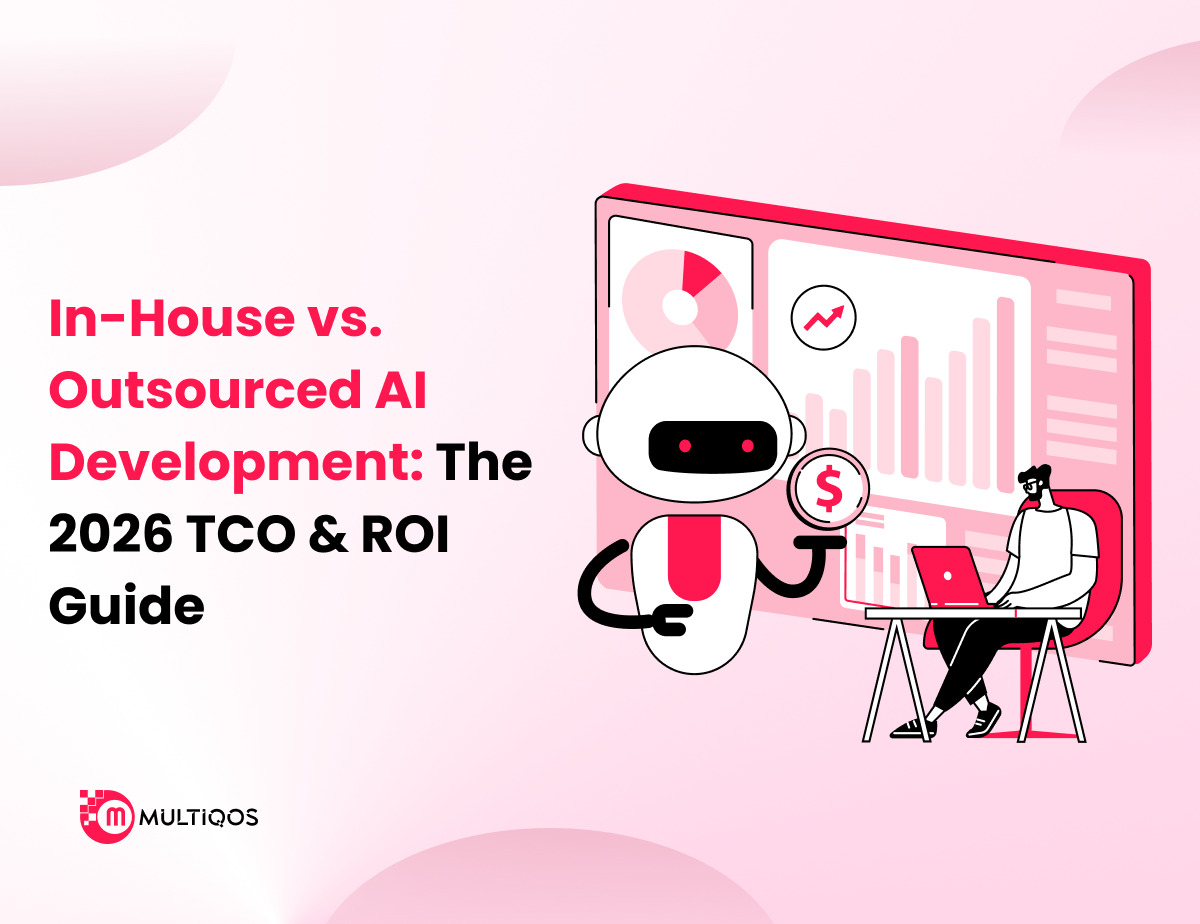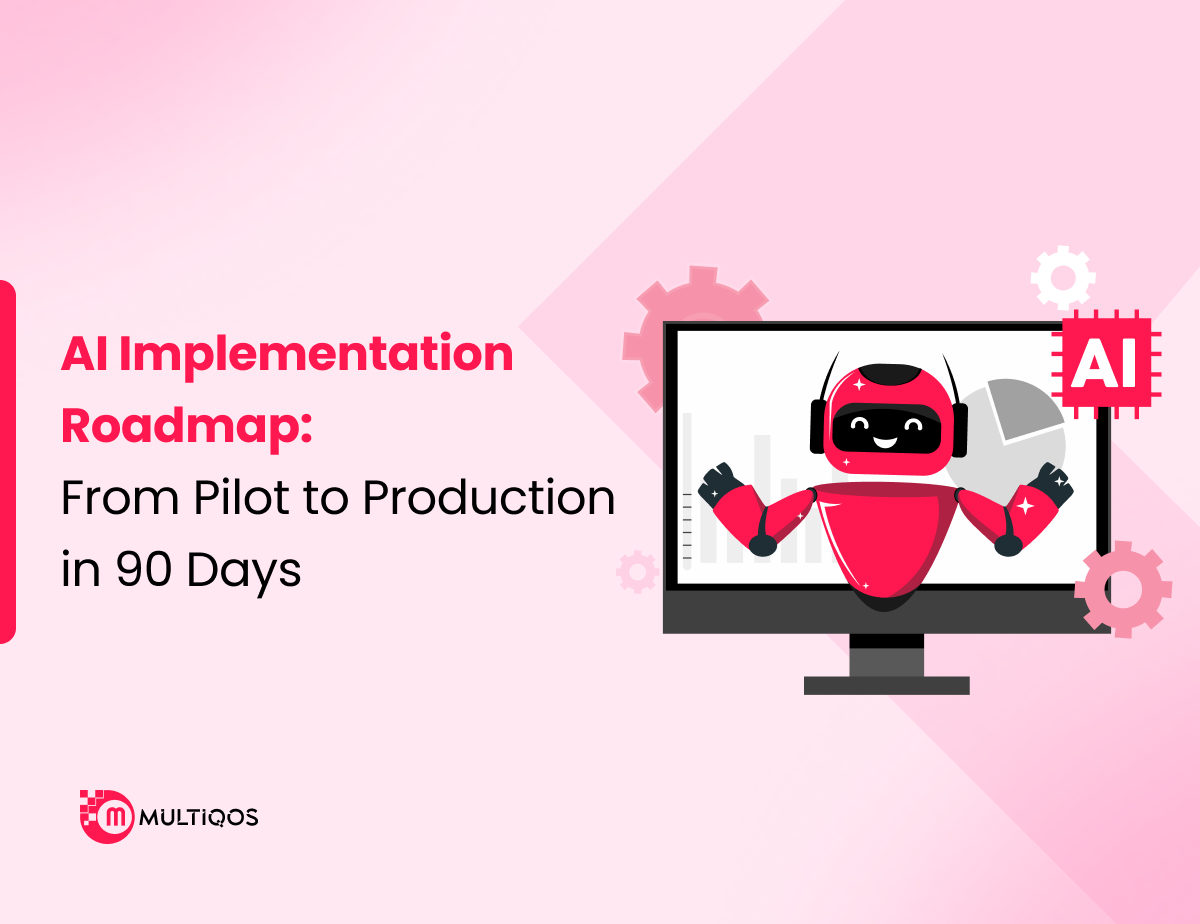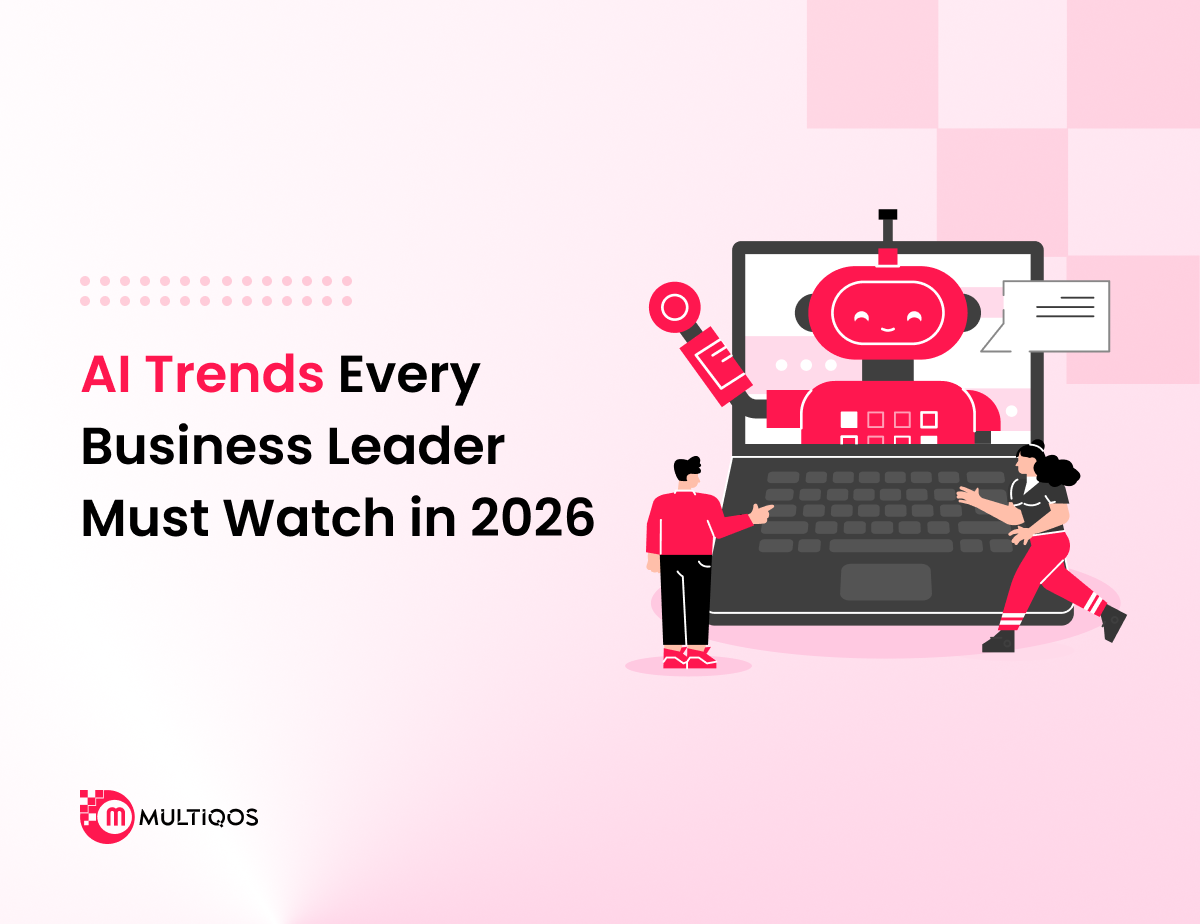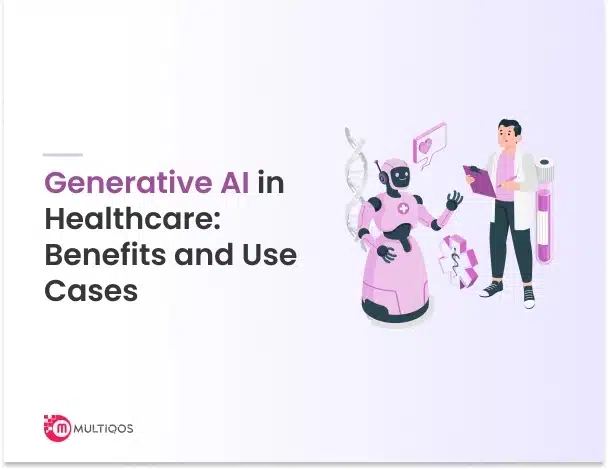
The arrival of generative AI has brought about many changes and opportunities for different sectors and fields. Organizations across different sectors can use this rapidly evolving technology to change the way they approach to solve problems that are specific to their industries.
Indeed, the revolutionary uses of generative AI have made it a pivotal solution for organizations regardless of the industry they operate. Just like other industries, generative AI is also proving useful for the healthcare industry with a wide array of use cases and benefits.
Generative artificial intelligence opens new possibilities for healthcare organizations paving the way for optimized and streamlined services. The Gen AI technology is expected to bring about a revolutionary change in the healthcare industry that redefines the processes in it.
Gen AI can work beyond the limitations of conventional methods pushing the boundaries with complex machine learning algorithms. These solutions have a profound impact on different facets of the healthcare sector transforming the way they operate and provide healthcare services.
This article will delve deep into the role of generative AI in healthcare to help you understand its uses and overall impact on this sector. Keep reading for useful insights that will aid in decision-making to transform your healthcare organization. Let’s go without further ado.
Understanding Generative AI and Its Scope in Healthcare
Before we delve deep into the realm of generative AI and its uses in healthcare, let’s start with an important question – what is generative AI? In simple words, Generative AI or Gen AI is a deep learning model that is capable of producing high-quality images, text, video, and other content on which it was trained.
Gen AI takes artificial intelligence technology to the next level by empowering users to auto-generate content with text-based prompts. ChatGPT is probably the most suitable example here for generative AI. It can write poems, code, stories, and a lot of other stuff that looks like written by a human.
Today, generative AI is playing a crucial role in various domains and healthcare is not an exception. There is a lot of potential for generative AI in healthcare providing lots of benefits to clinicians, medical researchers, large firms, and other entities.
Key advantages of generative AI include enhanced disease diagnosis, personalized patient care, improved healthcare operations, and more.
According to a report by Precedence, generative AI’s global market share in healthcare is expected to increase by more than $21.74 billion by 2032. It will rise with a CAGR of 35.14% over the years between 2023 – 2032. It shows the potential of gen AI in the healthcare industry.
The rising market share indicates an increasing adoption of generative AI by healthcare organizations. The enhanced organizational efficiency and better outcomes lead to increased adoption of generative AI in healthcare.
Benefits of Generative AI in Healthcare
Generative AI has become pivotal in multiple industries with a wide range of use cases. Moreover, the healthcare industry has started to leverage this technology to maximize the outcomes and increase efficiency in recent times. There are a plethora of benefits that the healthcare industry gets from this innovative technology.
Whether it is about enhancing the delivery of healthcare software development or minimizing the costs in processes, generative offers lots of benefits to healthcare organizations. Let’s see the key advantages of Gen AI in healthcare below.
- Automate Repetitive Tasks: Gen AI can help minimize time by automating repetitive tasks. For example, it can automate document processing, administrative procedures, image analysis, and more.
- Reduce Human Bias and Errors: Human errors and bias can have a significant impact on patient outcomes, treatments, diagnoses, and more. However, the use of generative AI can reduce these inaccuracies when appropriately trained on related data. Hence, generative AI helps generate reliable and accurate results based on testing and analysis.
- Precise Forecasts: Generative AI models can be utilized to analyze a vast amount of data including medical records, genetic information, and environmental variables. This analysis can help find trends and patterns in these data pieces through advanced AI algorithms. It will help in making forecasts for the disease’s course and prevent the spread of disease with early detection.
- Efficient Use of Resources: You can leverage generative AI for optimum healthcare operations with wise allocation of resources and defining priorities for tasks. It can streamline patient flow management, care coordination, and appointment scheduling. It leads to effective utilization of resources and hassle-free processes. Consequently, there will be higher patient satisfaction and reduced costs.
Uses of Generative AI in Healthcare
Generative AI has significant uses in the healthcare industry providing innovative ways to deliver healthcare services. Let’s check out the key applications of generative AI in healthcare that are transforming the industry.
Drug Discovery and Development
Gen AI has a huge potential in discovering and developing new drugs. It provides reliable techniques for discovering and developing drugs. The following are applications of gen AI in this realm.
- Drug-to-Drug Interaction Prediction: Generative AI can help predict the interactions between two or more drugs. It helps medical researchers to assess the effectiveness and safety of combining medicines. It is quite useful in creating combination therapies that could optimal treatment results while the associated risks are minimized.
- Clinical Trial Design: Gen AI is helpful in designing refined clinical trials by analyzing historical clinical trial data. It helps in anticipating potential challenges and relevant patient groups. This is useful in strategic planning for clinical trials that enhance drug development efficiency.
- Compound Generation: Generative AI can help explore diverse drug spaces with effective models which helps researchers speed up drug discovery. These models help identify new compounds that match the desired properties. It minimizes the efforts in discovering potential drug candidates and speeds up the discovery of suitable molecules to take development to the next stage.
- Repurposing Existing Drugs: Researchers can leverage generative AI to discover novel uses of existing medications and forecast their efficacy against various diseases.
Medical Imaging
Generative AIs empowered with advanced technologies like CNNs (Convolutional Neural Networks) and many other deep learning frameworks are quite useful in medical imaging. The following are the points that highlight the overall impact of gen AI on medical imaging.
- Pathology Prediction: Generative AIs are helpful in identifying pathological conditions by analyzing patterns in medical images. Hence, they are useful in preventing severe medical conditions by helping in the early detection of potential diseases.
- Image Synthesis: Generative AI can serve educational purposes to help medical students and professionals get the requisite training with synthesized tissue or organ images. It simplifies the explanation of medical conditions with visually represented items.
- Automating Classification: With the help of generative AI professionals can automate the process of identifying and classifying medical abnormalities or organs in medical images. It saves medical professionals a lot of time.
Personalized Medicine
Generative AI can help create personalized treatment plans by analyzing the data of individual patients. It makes medical treatment more effective and accurate. The following points highlight the importance of Gen AI in personalized medical treatment.
- Real-time Support for Clinical Decisions: Clinicians get evidence-based, real-time recommendations for treatment with the use of generative AI. So, patients get personalized treatment based on their genetic profile analyzed by AI. It enhances decision-making and helps clinicians deliver better care.
- Custom Treatment Plans: Gen AI models can evaluate patient data such as medical history, clinical data, and genetic information to create tailored treatment plans. Consequently, clinicians can choose the best-suited therapies for the patient to offer better medical care.
- Compliance Assistance: Generative AI can help understand the legal and ethical considerations for tailored medications. It enables them to adhere to ethical as well as privacy regulations and standards ensuring patient trust and compliance with laws.
- Resource Optimization: Generative AI automates routine tasks, streamlines workflows, and improves the efficiency of genetic tests by overcoming the challenges of resource limitations.
Administrative Tasks
Generative AI also plays a crucial role in improving productivity among medical staff and minimizing delays in medical services. The following are all the uses of Gen AI in optimizing administrative operations.
- Summarizing Medical Documents: Generative AI can help summarize lengthy medical documents and save valuable time. It speeds up the relevant processes and accelerates decision-making.
- Optimize the Use of Resources: Medical researchers can leverage gen AI to optimize available resources and automate tasks. Consequently, it helps them address the challenges related to resource constraints and utilize resources more effectively.
- Automated Record Keeping: The adoption of Gen AI helps streamline document processing and record-keeping through automation. It automates the process of updating patient records and transcribing medical records reducing the burdens of administrators.
- Automate Billing and Claims Processing: The use of Artificial Intelligence in billing and claims processing helps reduce costs, minimize errors, speed up reimbursement cycles, and offer other advantages.
- Compliance Automation: Generative AI automates compliance checks helping healthcare providers stay aligned to necessary standards and regulatory compliances.
- Efficient Workflow: AI can analyze administrative workflows to identify gaps and inefficiencies to recommend optimizations that lead to effective and streamlined processes.
Medical Research
Medical researchers get many advantages of deploying generative AI into their processes. They can reduce overall time, minimize costs, and maximize efficiency in medical data processing research for enhanced outcomes and decision-making.
- Data Processing: There is a significant advantage of gen AI in data processing because it can handle data at a huge speed and scale. As a result, it streamlines and expedites the administrative process.
- Predictive Analytics: Generative AI offers insights into possible outcomes by analyzing historical data. Hence, helping medical researchers improve decision-making and build the right strategies for research projects.
- Identify Trends: Gen AI can process large data sets to identify patterns and trends that help in medical research.
Risk Predictions
Generative AI can help predict healthcare risks and aid in preparing for pandemics. The following points showcase how it can be utilized in predicting risks.
- Early Detection: Generative AI fetches real-time data from multiple sources such as health reports, social media, and environment-related data that enables it to discover early signs of diseases that might be emerging into a pandemic.
- Vaccine Development Optimization: Gen AI helps predict potential vaccine candidates by analyzing genetic data and speeding up drug discovery and development. It helps in quick response to new pathogens.
- Supply Chain Resilience: Generative AI can enhance supply chain management by offering predictions to mitigate disruptions in the supply chain. It can help in demand forecasting, monitoring inventory levels, and ensuring a responsive supply chain.
Final Note
At last, generative AI has a huge potential in healthcare and it can transform the industry with operational efficiency, enhanced patient care, and quality research. You have seen the different benefits and use cases of generative AI in the field of healthcare.
Implementing gen AI in your healthcare organization can offer excellent benefits that can improve processes and reduce operational costs. You need a tailored generative AI solution to maximize the outcomes and get a solution that aligns with your organization.
Moreover, you need to partner with a reliable AI development partner like MultiQoS to get the most of your investment. With solid experience in AI development and knowledge of the latest technologies, we are capable of delivering the best and most innovative solutions.
Our AI developers are proficient in top frameworks and tools like Sci-kit, PyTorch, Caffe, Scikit-learn, Keras, TensorFlow, Theano, and more. Plus, they are well-versed in popular programming languages for AI like Python, Go, JavaScript, Java, and more.
FAQ on Generative AI in Healthcare
There are a lot of uses of generative AI in healthcare. However, the main use of gen AI is in enhancing decision-making, improving medical diagnosis, better research, and more. It offers advanced algorithms to produce valuable information and optimize decision-making. It helps medical professionals to access a huge amount of data and draw conclusions based on it. As a result, it improves the overall diagnosis process.
While generative AI offers many advantages for healthcare firms and there is a wide range of applications for it, there are a few challenges that must be tackled to get full benefits. These challenges include ensuring data security and privacy, regulatory compliance, and validating the reliability and accuracy of results.
Generative AI is a robust technology for the healthcare industry that offers numerous advantages. Healthcare businesses and firms can benefit from it by developing generative AI applications and solutions. Key components for producing high-end gen AI applications and solutions include transformers, Generative Adversarial Networks (GANs), and Variational Autoencoders (VAEs). These components will help in improving medical imaging, generating synthetic data, and drug discovery and molecular design.
Generative AI can improve the capabilities of interpreting medical images, helping in finding anomalies or subtle patterns and enhancing data synthesis for rare diseases. There is a huge impact of generative AI on the healthcare industry providing various benefits that enhance the efficiency of firms operating in this industry. Plus, it improves decision-making and enhances administrative processes.
There is a long list of the use cases of generative AI for healthcare organizations. A healthcare organization that wants to incorporate Gen AI must begin by identifying the specific use cases. They must search for the gaps where generative AI can bring a positive impact. Identifying and highlighting the requirements will help a healthcare organization understand it can leverage gen AI to drive the utmost benefits. After this, the organization should look for a reliable generative AI solution partner to incorporate this technology into the organization for the required benefits.
Generative AI offers many advantages, but it is not without its limitations. There are a few challenges that generative AI poses and makes things a bit complicated for the consumers of this technology. For example, it can provide a summary of information but may not offer the explanation from key sources to ensure the reliability of the data. Let’s see the limitations of gen AI as follows:
- The source of information that gen AI generates output from may be biased.
- The source of information is not always identified.
- Identifying inaccurate information due to the presence of realistic-sounding content.
- It is not easy to understand to refine for new scenarios.
Get In Touch


